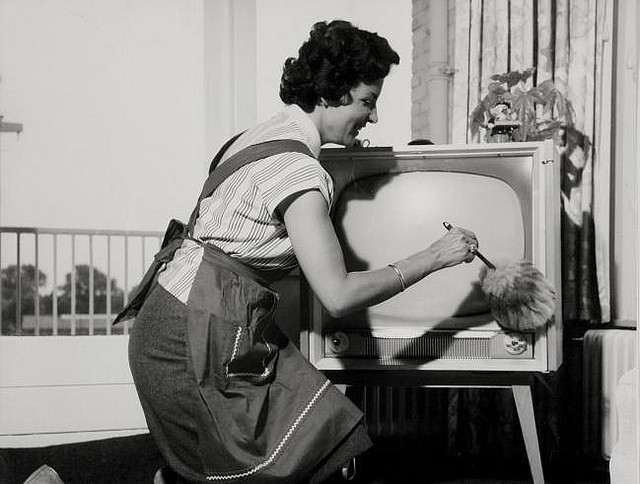Culture

Netflix's Chief Product Officer Neil Hunt and The New Yorker's Ken Auletta discuss the evolution of television and what scares cable companies the most. Read More...
Estee Lauder, left, helps a customer apply lipstick in 1966. Credit: Bill Sauro/World Journal Tribune / Wikimedia Commons
Even with hindsight being 20/20, betting on a woman founding an entirely new industry in the throes of the Great Depression seems pretty unlikely. But, as historian and Harvard Business School professor Nancy Koehn tells us, it’s the story of Estee Lauder. Read more...
H.J. Heinz was an ingenious businessman with an obsessive - and odd- personality, says Joshua Kendall. Here, a selection from a 1930 Heinz recipe book. Credit: alsis35 / Flickr Creative Commons
Ever notice that many famous innovators seem a bit…prickly? Joshua Kendall, author of "America's Obsessives," says visionaries - like H.J. Heinz and Melvil Dewey - often exhibit the kind of obsessive behavior that leads to great ideas, but troublesome personal lives. Read more...
Dr. Paula Hammond of MIT discusses her pioneering cancer research, which uses nanotechnology to achieve scientific breakthroughs. Read more...
Historian Paula Byrne argues that one of the greatest female writers ever, Jane Austen, was both a transformative artist and a powerful career woman ahead of her time. Read more...
According to data from the National Science Foundation, women make up only 24 percent of jobs in technical or STEM fields, while African-Americans and Latinos make up just 3 percent. Back in the 1980s at MIT, the difference was even more pronounced. MIT professor and nanotechnology researcher Paula Hammond reflects on her early years in the sciences. Read more...
Put down that low-fat yogurt! Dr. Robert Lustig says that sugar - not fat - may be the real culprit behind America's obesity epidemic. Read more...
Historian Elizabeth Abbott tells us the story of how people first fell in love with sugar - despite the high human cost of producing it. Read more...
Stanford's Jeffrey Pfeffer explains how money manipulates the way we think. Read more...

